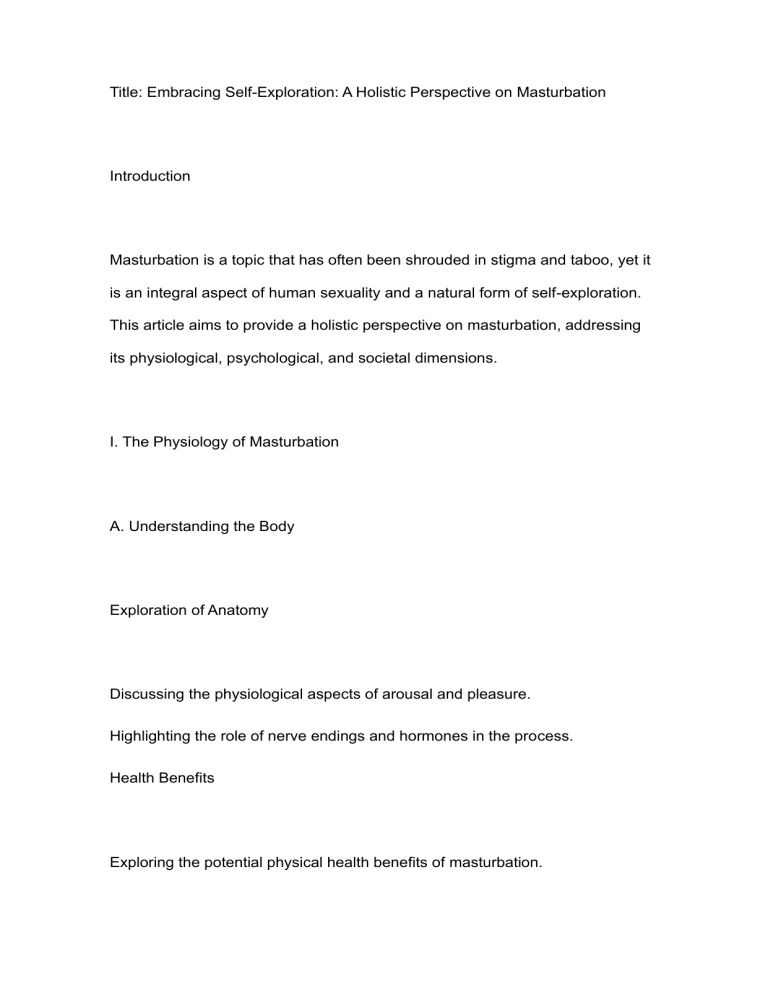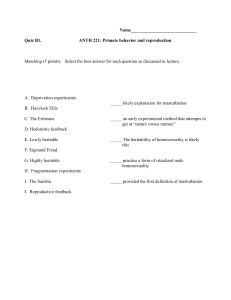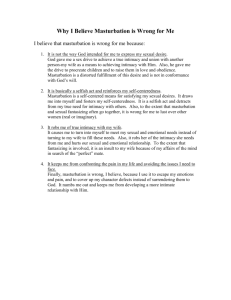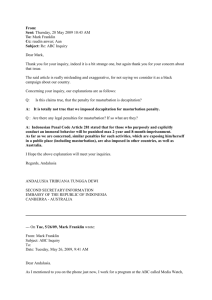
Title: Embracing Self-Exploration: A Holistic Perspective on Masturbation Introduction Masturbation is a topic that has often been shrouded in stigma and taboo, yet it is an integral aspect of human sexuality and a natural form of self-exploration. This article aims to provide a holistic perspective on masturbation, addressing its physiological, psychological, and societal dimensions. I. The Physiology of Masturbation A. Understanding the Body Exploration of Anatomy Discussing the physiological aspects of arousal and pleasure. Highlighting the role of nerve endings and hormones in the process. Health Benefits Exploring the potential physical health benefits of masturbation. Discussing its role in stress reduction and improved sleep. B. Debunking Myths and Misconceptions Dispelling Stereotypes Addressing common misconceptions surrounding masturbation. Challenging myths related to its impact on physical health. II. The Psychology of Masturbation A. Emotional Well-being Self-Exploration and Body Positivity Discussing how masturbation fosters a positive relationship with one's body. Addressing the role of self-love and acceptance in mental well-being. Stress Relief and Relaxation Analyzing the psychological benefits of masturbation in stress management. Exploring its potential role in reducing anxiety and promoting mental clarity. B. Relationship Dynamics Communication and Intimacy Discussing how open communication about masturbation can strengthen relationships. Addressing the importance of understanding and respecting individual boundaries. Overcoming Guilt and Shame Analyzing societal influences on feelings of guilt and shame related to masturbation. Encouraging a healthy dialogue about sexual desires within relationships. III. Societal Perspectives and Cultural Influences A. Historical Context Tracing the Evolution of Attitudes Examining historical perspectives on masturbation. Highlighting the changing societal attitudes and their impact on individual experiences. B. Contemporary Views The Role of Education Advocating for comprehensive sex education to dispel myths and encourage healthy sexual practices. Discussing the importance of inclusive conversations about masturbation in educational settings. Breaking Taboos Addressing the need for open discussions to challenge societal taboos. Encouraging a shift towards a more sex-positive and inclusive culture. Conclusion In conclusion, masturbation is a natural and healthy aspect of human sexuality that deserves understanding, acceptance, and open dialogue. By exploring its physiological, psychological, and societal dimensions, we can foster a culture that embraces self-exploration and promotes positive sexual well-being. Breaking free from the shadows of stigma, individuals can develop a more holistic and affirming relationship with their bodies and sexuality.


